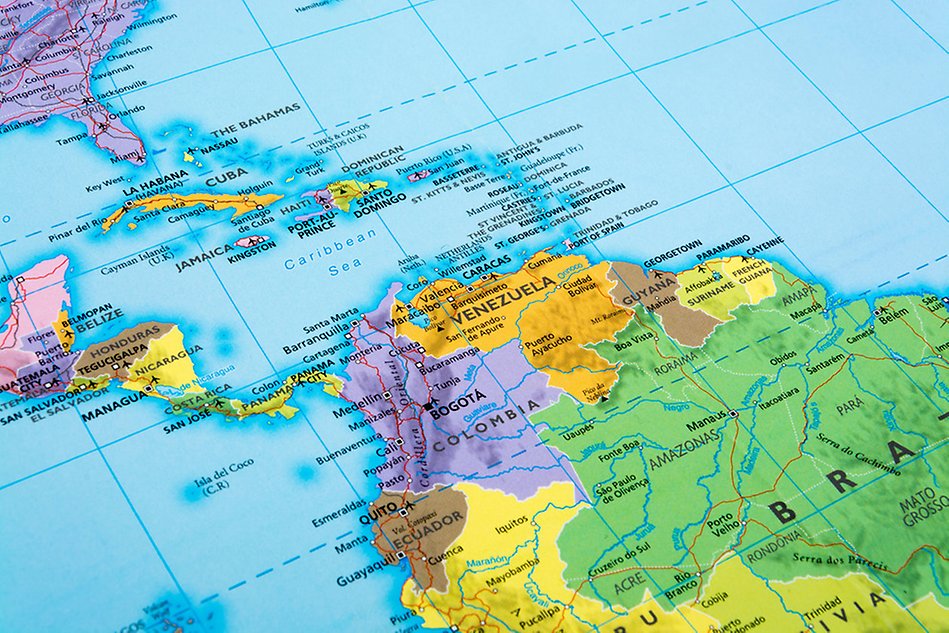Making multinational subsidiaries succeed – a matter of understanding the impact of distances
What aspects decide if multinational subsidiaries fail or prosper? What effect do cultural differences have on the companies’ financial performance? And how are they affected by dissimilarities in formal structures between home and host country? New research from Halmstad University aims to answer these questions, as PhD student Henrique Correa da Cunha investigates the implications of cultural and formal institutional distances to the financial performance of foreign subsidiaries from emerging markets and developed countries operating in Latin America.
”Motivated by my experience in dealing with different cultures and in different contexts, I decided to devote my research journey towards exploring these concepts even further.”
Henrique Correa da Cunha
Henrique Correa da Cunha is the first participant in the double PhD degree programme between Halmstad University and University of Blumenau (FURB), Brazil. Both universities are focused on innovation and strive to promote innovative thinking amongst their students and researchers, as well as on a regional, national and international level. Henrique Correa da Cunha’s doctoral thesis focuses on how national culture and formal institutions affect the internationalisation of emerging market and developed country firms and is written within the field of innovation science.
”When I started writing my doctoral thesis, I wanted to advance my knowledge in how foreign subsidiaries of multinational firms are affected by cultural aspects and formal institutions when establishing business in Latin America”, says Henrique Correa da Cunha and continues:
”I started my PhD studies in 2015, and when FURB and Halmstad University signed the agreement for double PhD degrees in 2017, I saw that as a great opportunity. It has given me the chance to interact with professors from both universities, and I had two very experienced supervisors, professor Svante Andersson from Halmstad University and professor Mohamad Amal from FURB. This has greatly improved my learning experience, as they have helped me identify important aspects and potentials in my research.”

Henrique Correa da Cunha investigates the implications of cultural and formal institutional distances to the financial performance of foreign subsidiaries from emerging markets and developed countries operating in Latin America.
The 1990’s – a period of change
During the last decade of the 20th century, international trade policies went through profound changes, impacting the dynamics of the global trade market, and not least those of Latin America. As the number of regulations and restrictions regarding foreign firms’ activities in developing countries were reduced, the conditions for foreign businesses to invest in Latin America became more favourable, as did the opportunities, and the need, for Latin American firms to start international subsidiaries.
”In international business, firms need to know the rules of the game in different countries in order to succeed, and that’s how my research can come to benefit society. Firms and governments can take advantage of my findings in order to identify ways to become more competitive”, says Henrique Correa da Cunha.
About the doctoral thesis
The doctoral defence seminar is held at Halmstad University on October 4, 2019.
Cultural and formal institutional distances
In his thesis, Henrique Correa da Cunha writes about cultural distances and formal institutional distances.
Cultural distances can be defined as differences in social norms, customs and traditions that shape behaviour and beliefs.
”Traditionally, cultural distances have been assumed to be directionless and symmetric, meaning that the effects of the distances are the same both in the firm’s home and host country. For instance, if the social norms differ between country A and country B, firms from country A setting up business operations in country B will encounter the same difficulties as firms from country B who establish a subsidiary in country A. However, I don’t agree with this way to look at cultural differences, and that is one of the things that my thesis points towards”, says Henrique Correa da Cunha.
”In international business, firms need to know the rules of the game in different countries in order to succeed, and that’s how my research can come to benefit society. Firms and governments can take advantage of my findings in order to identify ways to become more competitive.”
Henrique Correa da Cunha.
Formal institutions, on the other hand, can be defined as those institutions that provide structure to a society, for instance laws, policies and regulations.
”In business literature, there are two dominant views. The first one focuses on separate countries and their formal institutional environments, claiming that these matter when it comes to doing business. This perspective believes that a country with efficient, strong formal institutions is more favourable for business than one with inefficient and weak formal institutions. The other way to look at the issue is by focusing on the effects that differences between countries’ formal institutions have on international business. Traditionally, differences in formal institutions between countries have been viewed as something negative, as a liability, presuming that such differences create friction between the multinational firm and the foreign host market, giving foreign firms a disadvantage compared to national businesses”, Henrique Correa da Cunha explains.
As emerging markets and developed countries differ greatly in terms of formal institutions, foreign subsidiary firms from these countries are affected in different ways due to their ability to convert the experience in dealing with specific institutional conditions in their home countries into firm specific advantages when operating abroad.
”By including formal institutional distances in the discussion about foreign subsidiaries performance, it is broadened, but the concept is still quite controversial”, says Henrique Correa da Cunha.

Henrique Correa da Cunha.
Results that contradict traditional beliefs
The results that Henrique Correa da Cunha puts forward are in some ways controversial, as they are not in line with previous beliefs within the research field.
”My results show that cultural distances are asymmetrical, meaning that their effect is not the same on country A setting up business in country B, as it is on country B setting up business in country A”, says Henrique Correa da Cunha, continuing:
”The results also reveal important aspects when it comes to the relationship between formal institutional distances and cultural distances, where the formal seem to moderate the latter in different ways. When an international subsidiary is operating in a country that is less developed than its’ home country, formal institutional distances amplify the effect that cultural distances have on performance. Thus, besides the direct effects, which depend on the direction of the distance, formal institutions in the host country play an important role in curbing the effects of cultural distances on foreign subsidiary performance.”
Another important aspect of Henrique Correa da Cunha’s research is the innovativeness of the metrics employed in the study, particularly when it comes to calculating distances.
”My first concern was to develop a metric capable of capturing, in a quantitative manner, the effects of distances that have been reported based on the perception of participants of qualitative studies. Thus, it can be concluded that although the results confirmed several of the hypotheses, it shows a much more complex picture of how distances and their interaction affect the financial performance of foreign subsidiary firms. Contrary to what was expected, it shows that foreign subsidiaries from Latin America only have an advantage when dealing with formal institutions whereas they are affected in the same manner by cultural distances, when compared to other emerging market firms from outside the region”, says Henrique Correa da Cunha.
”My results show that cultural distances are asymmetrical, meaning that their effect is not the same on country A setting up business in country B, as it is on country B setting up business in country A.”
Henrique Correa da Cunha
Driven by passion
Henrique Correa da Cunha has a background in Business Administration and Information Technology. He was born in Brazil, but in 1998, he moved to Norfolk, USA, to study Information Technology at Old Dominion University. There, he found himself surrounded by different cultures, and thus, his interest in cultural differences was awakened. After graduating, he joined a large multinational firm in Brazil, which later came to sponsor his further studies, taking him to both USA and China. He recently joined Ryerson University in Toronto, Canada, ticking of yet another country. There, he expects to continue his research.
”Motivated by my experience in dealing with different cultures and in different contexts, I decided to devote my research journey towards exploring these concepts even further. As I am passionate about the topic of my research, writing the thesis was an opportunity to learn and an exciting moment of experimentation and discovery of new concepts that could provide better and more complete explanations to the phenomenon I was investigating”, Henrique Correa da Cunha concludes.


